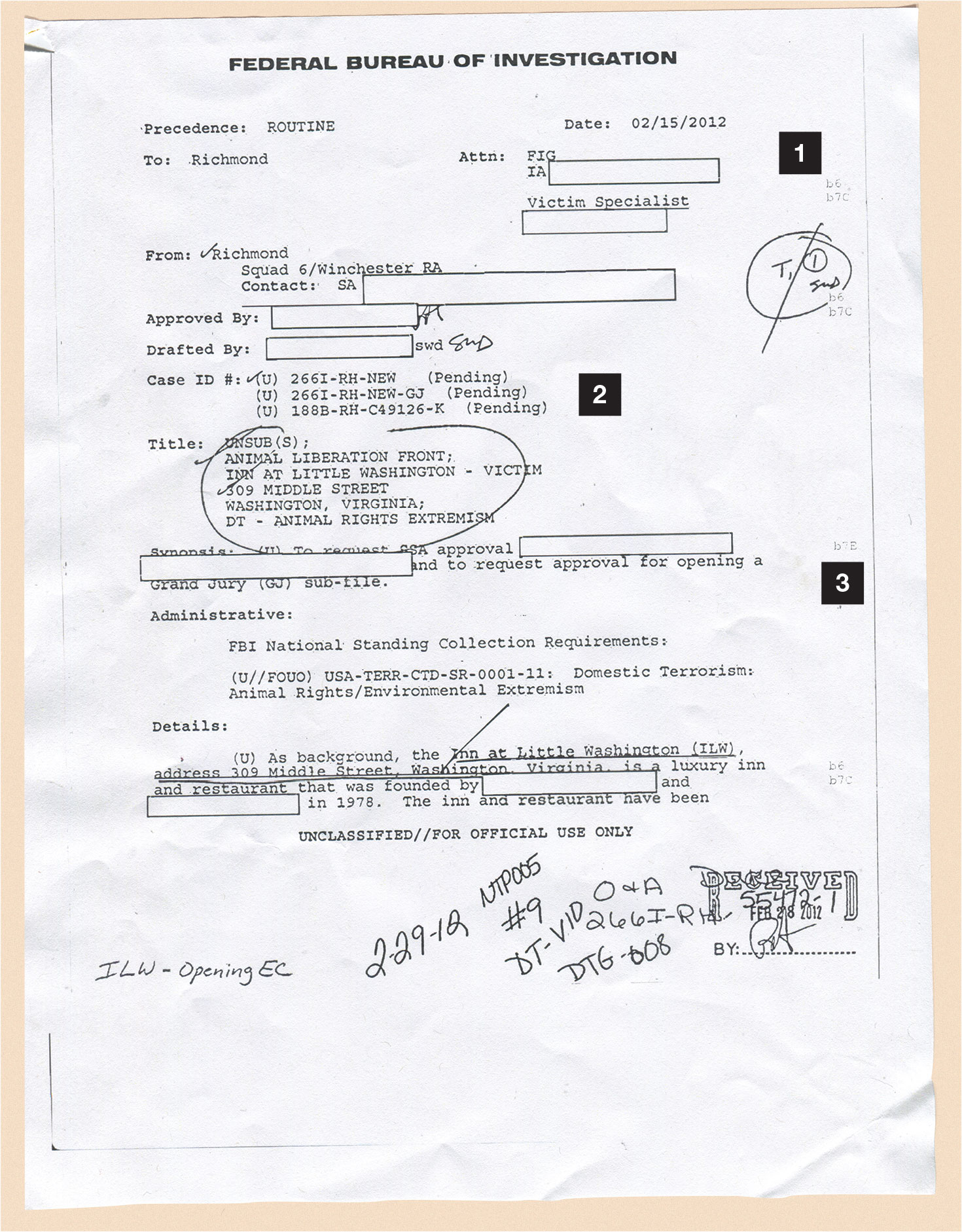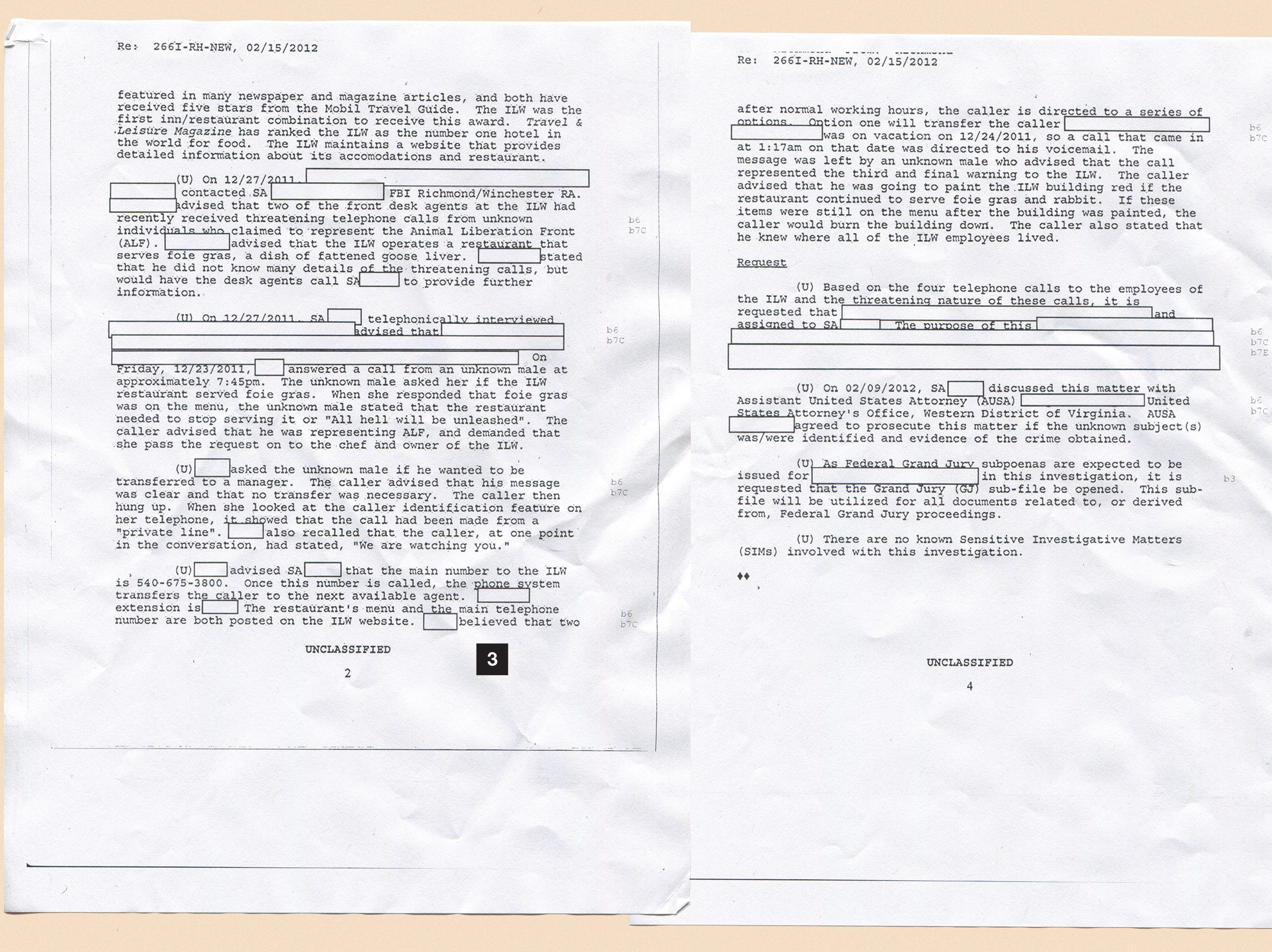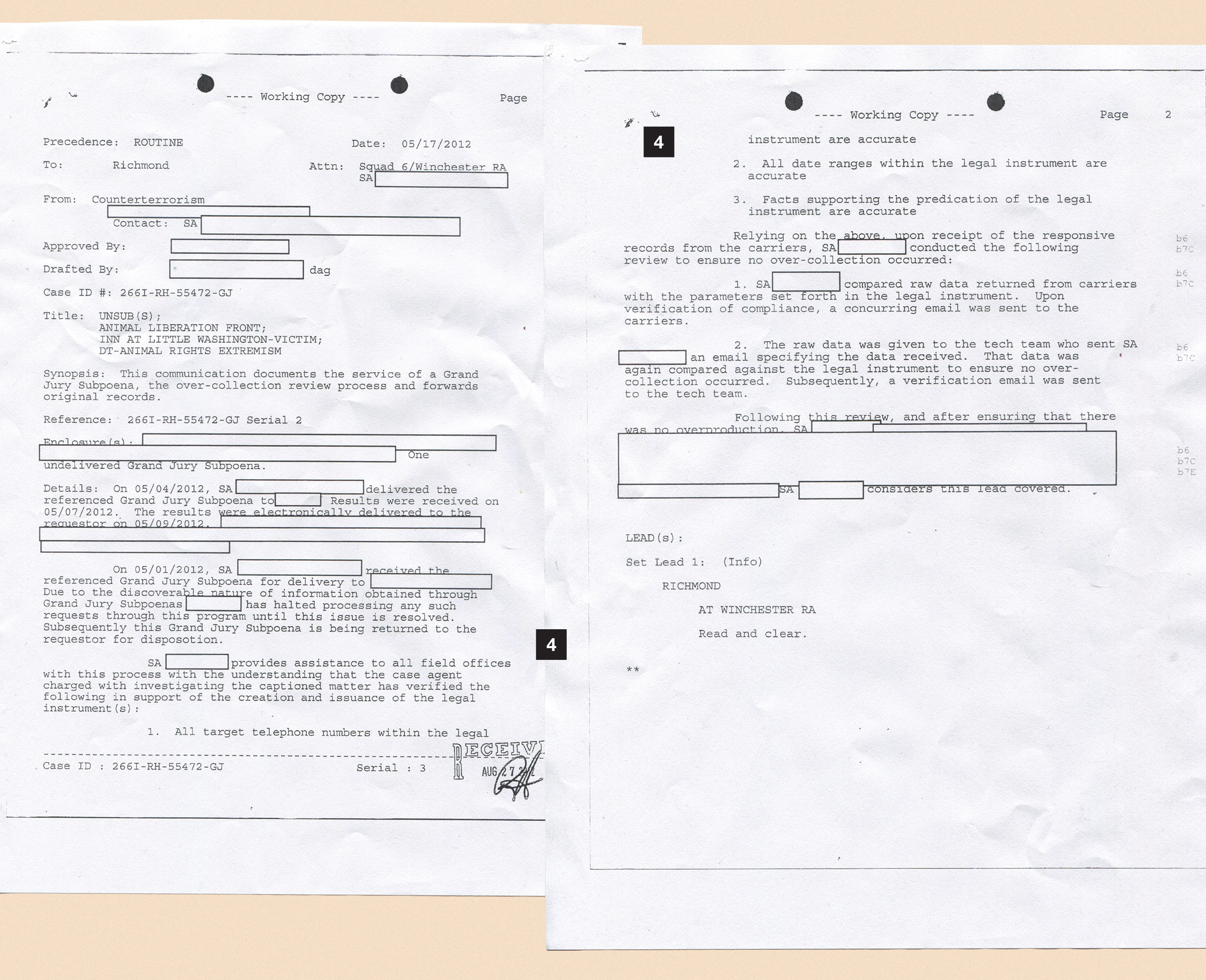 The FBI has been keeping an eye on the Animal Liberation Front for decades.
The FBI has been keeping an eye on the Animal Liberation Front for decades.
This story appears in the May issue of VICE magazine.
In December 2012, two front-desk clerks at the Inn at Little Washington (pictured above), a posh hotel and restaurant in Washington, Virginia, received some strange and threatening phone calls. “All hell will be unleashed,” the male caller said in one. “We are watching you.” He had a single demand: that the restaurant stop serving foie gras—goose or duck liver that is fattened by force-feeding the bird.
A few days later, he called the inn back, this time arguing with the desk clerk about another item on the menu. In addition to getting rid of the foie gras, the restaurant, he said, needed to immediately stop serving rabbit. He said that if the inn failed to comply, the group he worked for would spray-paint the hotel red and burn it down. The caller indicated that he knew where all of the hotel’s employees lived, saying, “You’ve been warned.”
According to 44 pages of FBI documents that I obtained by FOIA request, the caller was a representative of the Animal Liberation Front, known as ALF, a 40-year-old animal rights organization. The agency has designated the group a terrorist organization.
The FBI has been investigating the ALF for decades, so its special agents routinely generate new reports on the leaderless movement’s activism. In 2004, John E. Lewis, a deputy assistant director at the FBI, testified before the Senate Judiciary Committee and said that ALF, the Earth Liberation Front (ELF), and “related groups have committed more than 1,100 criminal acts in the United States since 1976, resulting in damages conservatively estimated at approximately $110 million.”
At the time, Lewis went on to say that ALF and ELF “have become the most active criminal extremist elements in the United States.” A year later, he appeared before another committee and said ALF and ELF are among “today’s most serious domestic terrorism threats.” That sort of rhetoric convinced Congress to support strict federal criminal statutes pertaining to domestic terrorism, so that ALF and ELF would be treated no differently from al Qaeda.
These files detail the incident at the Inn at Little Washington and reveal how the FBI’s counterterrorism division handled the threatening phone calls made by the animal rights activism group.

1. “FIG” stands for “Field Intelligence Group.” It is a working group within the bureau that takes “raw information from local cases and make[s] big-picture sense of it,” according to the FBI’s website. There is one FIG for each of the bureau’s field offices, and they “fill gaps in national cases with local information… and share their findings, assessments, and reports with fellow FIGs across the country and with our partners in law enforcement and intelligence to, say, shut down that money laundering scheme or keep a bomb from going off.” This document was directed to them.
2. The file carries the classification code “266,” which means that it pertains to “acts of terrorism in the United States” and specifically domestic terrorists. The other number here, “188,” is the FBI code for “Community Outreach / Crime Resistance,” which is part of an effort by the agency to get citizens more involved in stopping crime. A “U” indicating that the threats are unclassified precedes both.

3. The synopsis shows that this file was put together to request FBI “SSA,” or “supervisory special agent approval,” to open a grand jury sub-file. These documents note that the federal prosecutor assigned to the case agreed to prosecute the caller if the FBI could figure out his identity and obtain evidence that he committed a crime. A grand jury is an investigative tool. The file goes on to say that the “sub-file will be utilized for all documents related to, or derived from, Federal Grand Jury proceedings.” The special agent who handles domestic terrorism involving groups like ALF has taken over FIG’s investigation.

4. Here’s where it gets interesting. The file documents the service of a grand jury subpoena to unknown subjects by the “SA,” or “special agent.” It reveals some rare details about the FBI’s collection of phone data from targeted numbers as it pertains to the alleged threatening phone calls. The document refers to a “legal instrument” authorizing the FBI to collect such information from various phone carriers. It likely means that the FBI obtained all the phone numbers that called the inn within a specific date range in an effort to locate the ALF member. The file also outlines the two-step plan that the FBI used to prevent “over-collection,” though the “legal instrument” set to safeguard against the over-collection is not specified. However, the details of what happened after “no overproduction” was ensured remain redacted.
It’s unclear whether the FBI ever caught the ALF member. No one ever reported on the incident. Neither the FBI nor a spokesperson for the Inn at Little Washington responded to requests for comment. But foie gras is still on the menu.

